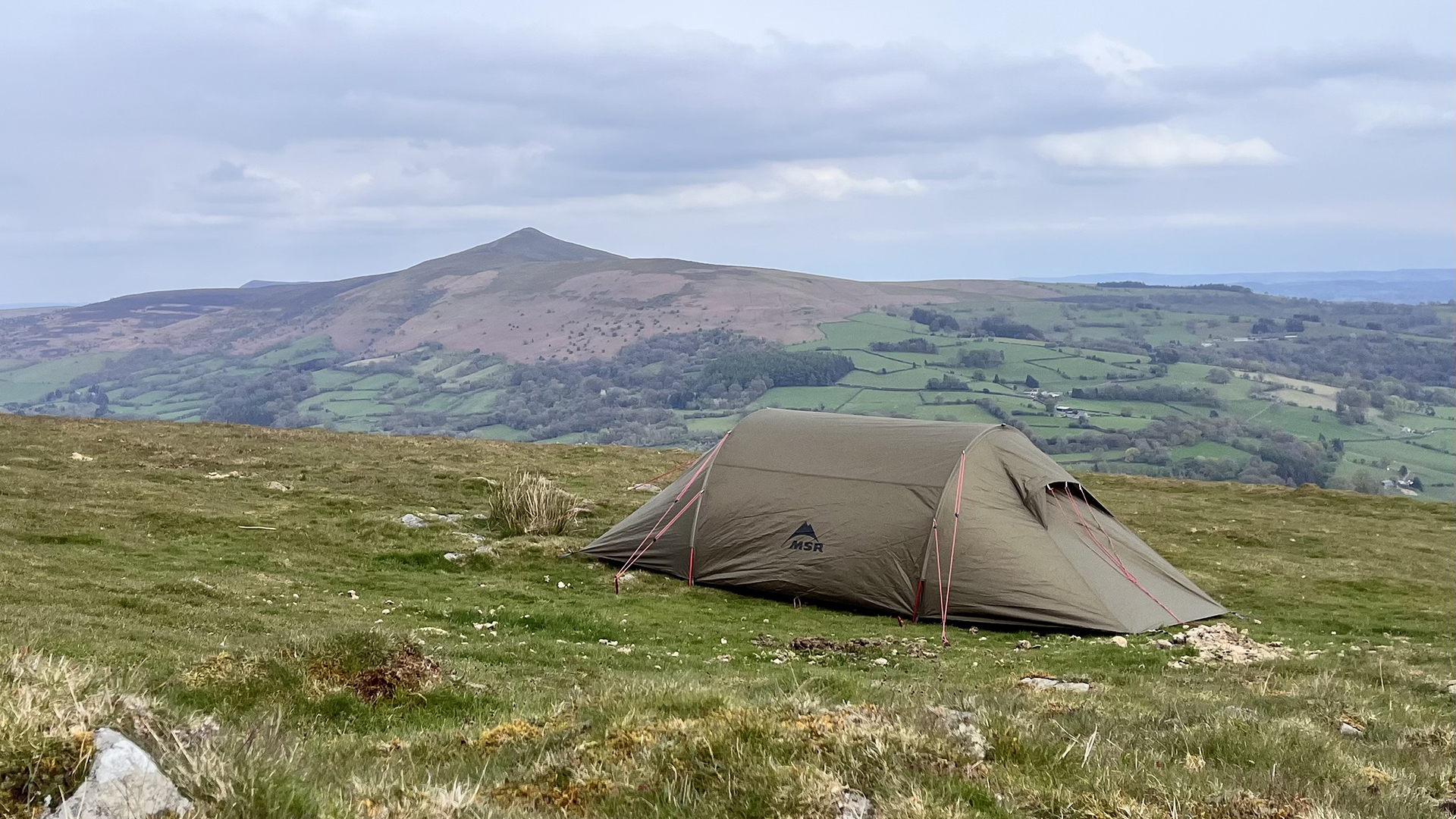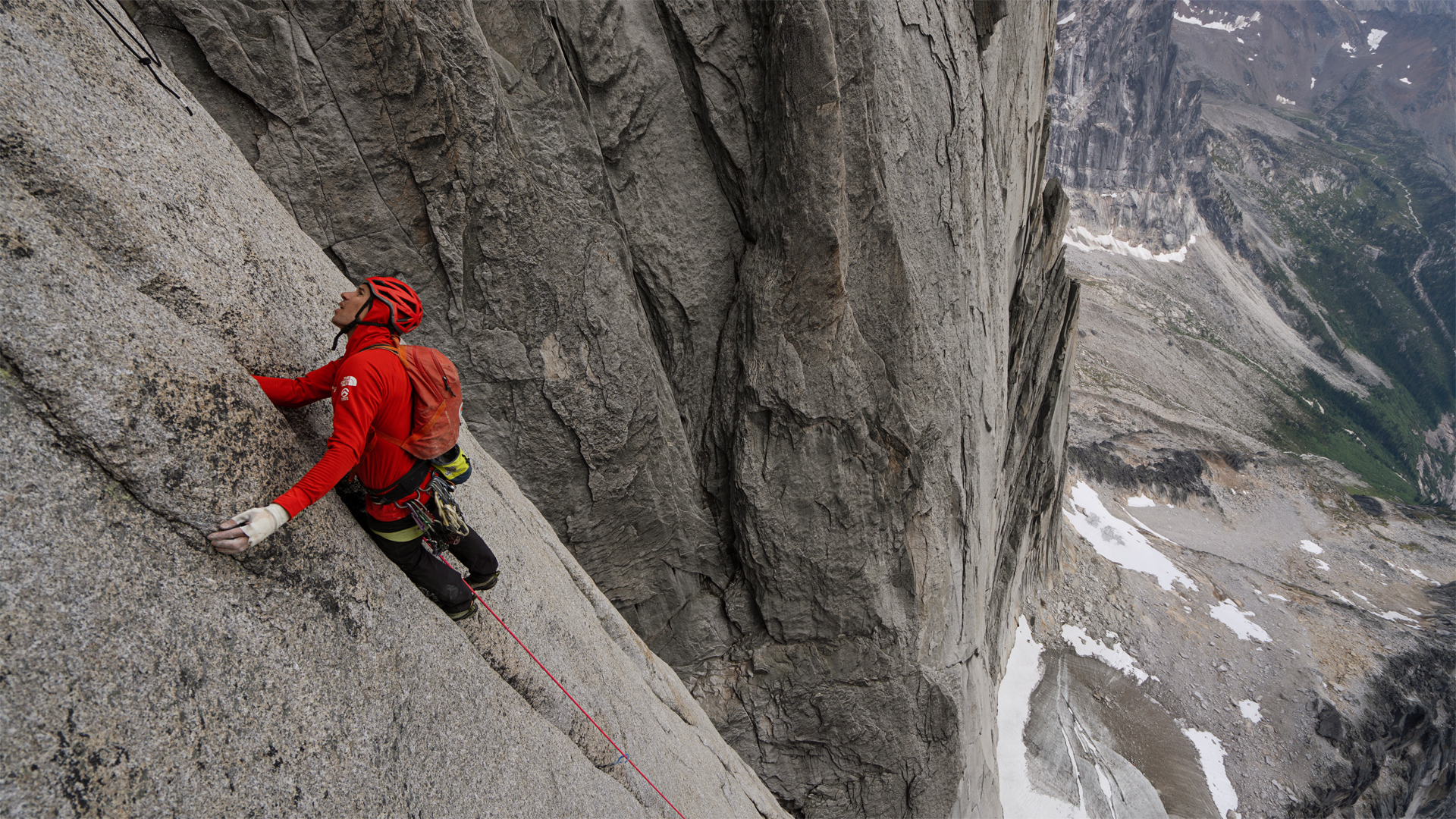Advnture Verdict
The MSR Tindheim 2 is a two-person tunnel tent that can, unlike most tents in this class, easily accommodate a couple, as well as all of the kit you could ever need. Being super stable, easy-to-pitch and coming with a host of nifty extra features, it helps make the most arduous backcountry adventures that little bit more comfortable – but only for those who travel in twos.
Pros
- +
Simple to pitch
- +
Huge inside
- +
Massive vestibule
- +
Strong in the wind
- +
A two-person tent that actually fits two people
Cons
- -
Large pack size
- -
Expensive
You can trust Advnture
Meet the reviewer

Growing up just south of the glorious Brecon Beacons National Park, Craig spent his childhood walking uphill. As he got older, the hills got bigger, and his passion for spending quality time in the great outdoors only grew – falling in love with wild camping, long-distance hiking, bikepacking and fastpacking. Having returned to the UK after almost a decade in Germany, he now focuses on regular micro-adventures in nearby Snowdonia and the Brecon Beacons, as well as frequent trips to the Alps and beyond. You can follow his adventures over on komoot, or visit www.craigtaylor.co for more info.
MSR Tindheim 2: first impressions
The Tindheim 2 two-person tent from MSR is one of the brand’s newest introductions to the tent market, hitting shelves in spring 2023. A step away from MSR’s normal style of shelter, the Tindheim 2 is also the first tunnel tent the brand has released, as well as the first tent MSR has designed that can be pitched outer-first or all together. Naturally, being based in the UK, where wind and rain are pretty much a staple of any outdoor adventure, this was music to my ears. I’ve always been happy to sacrifice a little bit of weight and packability for a tent that can be pitched in one go.
• List price: £380/$420
• Style: Tunnel tent
• Weight: 3.2kg / 7 lb 1oz
• Waterproofing: 1,500 mm
• Rooms: One bedroom, one vestibule
• Compatibility: Two people and gear
Weighing in at just over 3kg / 7 lb, however, the Tindheim 2 certainly requires a bit of sacrificing. This thing is far from lightweight, and coming with a packed size that is roughly the same as four loaves of bread, it’s not the smallest, either. For this, however, you get a burly and durable three-season tunnel tent that stands up well to wind and rain – and offers more space than any equivalent backpacking tent I’ve ever come across, aside from the original incarnation of Nortent’s palatial Vern 2.
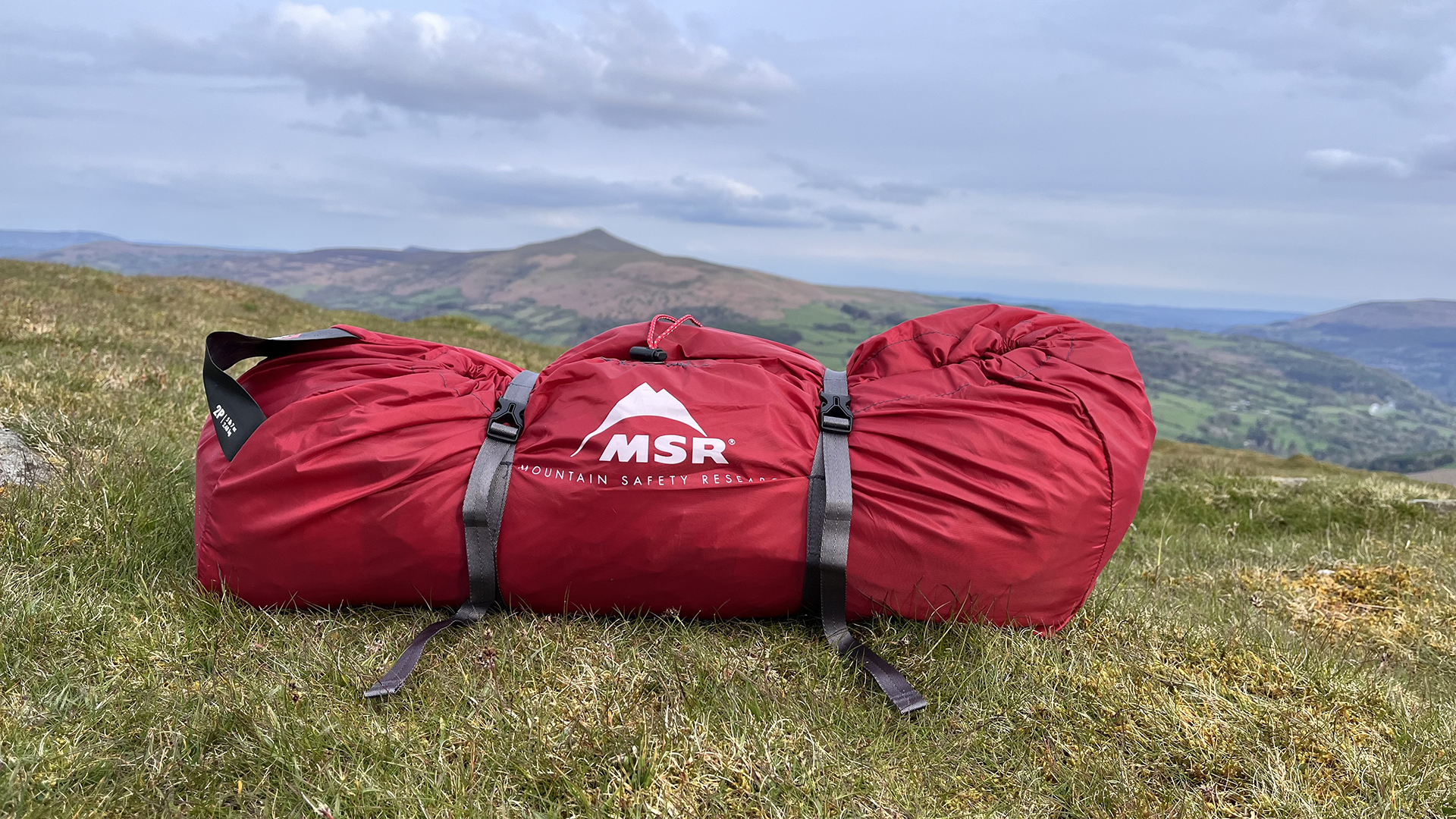
Out of the box, the Tindheim 2 comes with a thick and reliable 68D polyester flysheet, a solid 40D nylon micromesh inner, two high-quality aluminum poles and 14 groundhog pegs. You also get a durable groundsheet that covers the entire area of the tent and the vestibule, although this will add a further 400 grams to your combined pack weight (and a little extra to the pack size, too!).
As MSR don’t sell tents directly, you’ll have to shop around to see where you can get the best deal on a Tindheim 2. In general, though, they tend to come in at around the £380 mark, which – for the size and versatility of the Tindheim – feels like a reasonable price.
MSR Tindheim 2: in the wild
When a sample of the MSR Tindheim 2 turned up at the start of March, I was super excited to give it a go. Being MSR’s first foray into tunnel tents, I couldn’t wait to see whether it was on a par with their tried and tested designs, such as the Hubba series or Elixir lines. To find out, I instantly got out on a handful of short trips in it, including a long-distance multi-dayer in Bannau Brycheiniog/the Brecon Beacons where I carried the tent for around 30 miles over two days. On this trip, I intentionally pitched the Tindheim on a reliably windy peak in the Black Mountains, overlooking the likes of the Sugar Loaf and the Skirrid where I was lucky enough to test it against some reasonably high winds and quite a bit of rain. And you know what? Even though I was skeptical about the weight and pack size of the Tindheim when I started the trip, I was glad to be inside something this comfortable as the rain and wind fought against the flysheet on a dark night pitched atop Y Mynydd Du.
MSR Tindheim 2: pitching the tent
The first thing that really blew me away about the Tindheim 2 is just how easy it is to pitch this tent. The last tunnel tent I tussled with was the Nortent Vern 2 (albeit not the new 2024 version), which was quite tricky to pitch, especially in the wind. Preparing for a similarly painful experience, I was pleasantly surprised when the Tindheim sprang to life in a matter of minutes. Also, as the inner and the outer come pre-attached out of the box, you don’t need to faff around with any annoying clips the first time you put this up.
To pitch the tent, all you need to do is slide the two aluminum poles into the sleeves, pop the ends into the eyelets and peg out the corners. Seriously, even in heavy winds, this process is incredibly easy, even on your own, and you can have the whole tent pitched and ready to sleep in with just four pegs. Naturally, when pitching in more exposed places, you’ll also want to peg out all of the guy lines, which is just as easy to do seeing as they come pre-attached and ready to go.
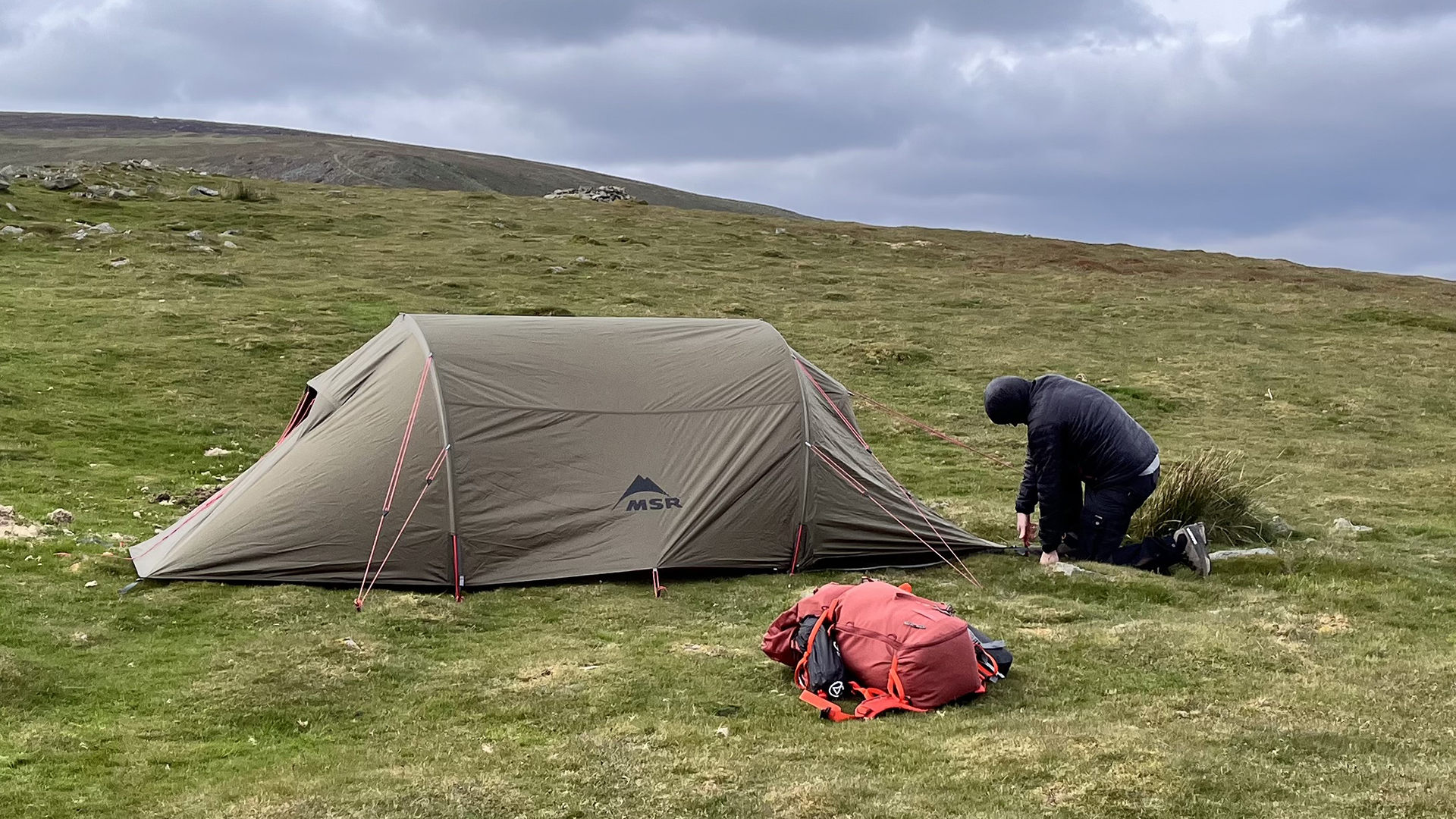
MSR Tindheim 2: livability
Once the Tindheim is up, you’re then left with a solid TARDIS-like shelter that delivers more than enough room for two people and kit. In fact, of the three occasions I used the Tindheim, two were on my own. And at 1.4m / 55in wide and 2.4m / 94½in long inside the main compartment, I actually felt like I had too much room – which was a first for me in a two-person tent. When used as a pair, however, you can easily fit two regular-sized (or even extra-long) sleeping pads in the Tindheim, and still have plenty of room left over to get as messy as you’d like with your gear.
Thanks to its tunnel shape, the Tindheim 2 also sits at just over a meter high. This means you can comfortably sit up in this tent without your head touching the mesh inner, which makes cooking in the vestibule an easy experience.
While we’re on the subject of the vestibule, this is another feature of the tent that I particularly enjoyed. It’s massive. You’ve more than enough space to pile up wet gear, boots or cooking equipment, or you could even use it as a separate sleeping compartment for wet dogs, especially if combined with the groundsheet.
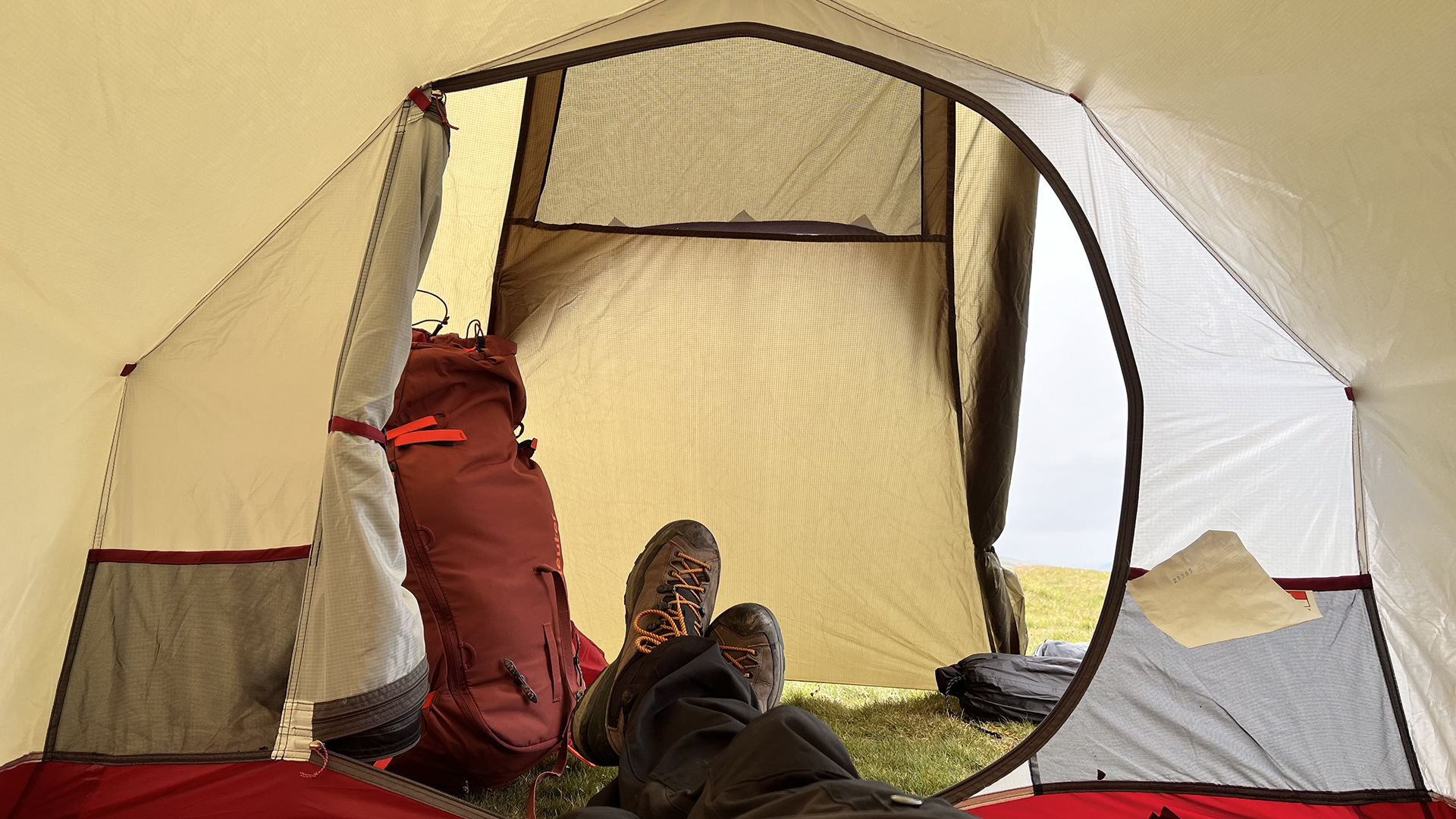
Inside the main compartment, the Tindheim also comes with a hanging line for hanging up wet clothes or a camping lantern, two massive pockets at the foot end of the tent, and a generously sized ventilation port that can be opened or closed from inside the tent. As there is about 10cm / 4in of space in between the inner and the outer, however, I found that the Tindheim does an awesome job at mitigating condensation even when this remained closed, although you’d almost certainly want it open if you were sleeping in this as a couple on a cold winter’s night.
MSR Tindheim 2: performance in wind and rain
Featuring a robust 68D polyester flysheet, the Tindheim 2 does a solid job in both the wind and the rain. And while this might not be as lightweight or as packable as a silnylon flysheet, I like the fact that MSR decided to make the Tindheim’s fly this way. Polyester isn’t prone to stretching in the rain in the same way silnylon shelters notoriously are (as our guide to types of tent fabrics explains), meaning the tent maintains a tight pitch irrespective of the weather. What’s more, even when the wind is battering the tent from all directions, the material is relatively quiet and doesn’t flap as much.
For maximum structural integrity, however, there are some things to bear in mind when pitching the Tindheim 2. Firstly, as it’s a tunnel tent, you need to peg it out in order for it to stay up. This isn’t a freestanding tent like the Wild Country Helm 1 Compact or the MSR Hubba series. What’s more, due to the geometry of the tunnel shape, you should always try and pitch it with the wind at its back (i.e. with the wind hitting the tent at the foot end). This allows the wind to better travel up and over the tent without pushing in too much from the sides.
MSR Tindheim 2: durability
As mentioned, the MSR Tindheim 2 comes with some relatively heavyweight materials for a tent designed for backpacking. Featuring a 68D polyester flysheet, a 40D nylon inner and a 68D polyester groundsheet, MSR has clearly favored performance and durability over pack weight and size. And while that might turn off ultralight thru-hikers, the result is a reliably durable and hard-wearing shelter that will undoubtedly last many seasons.
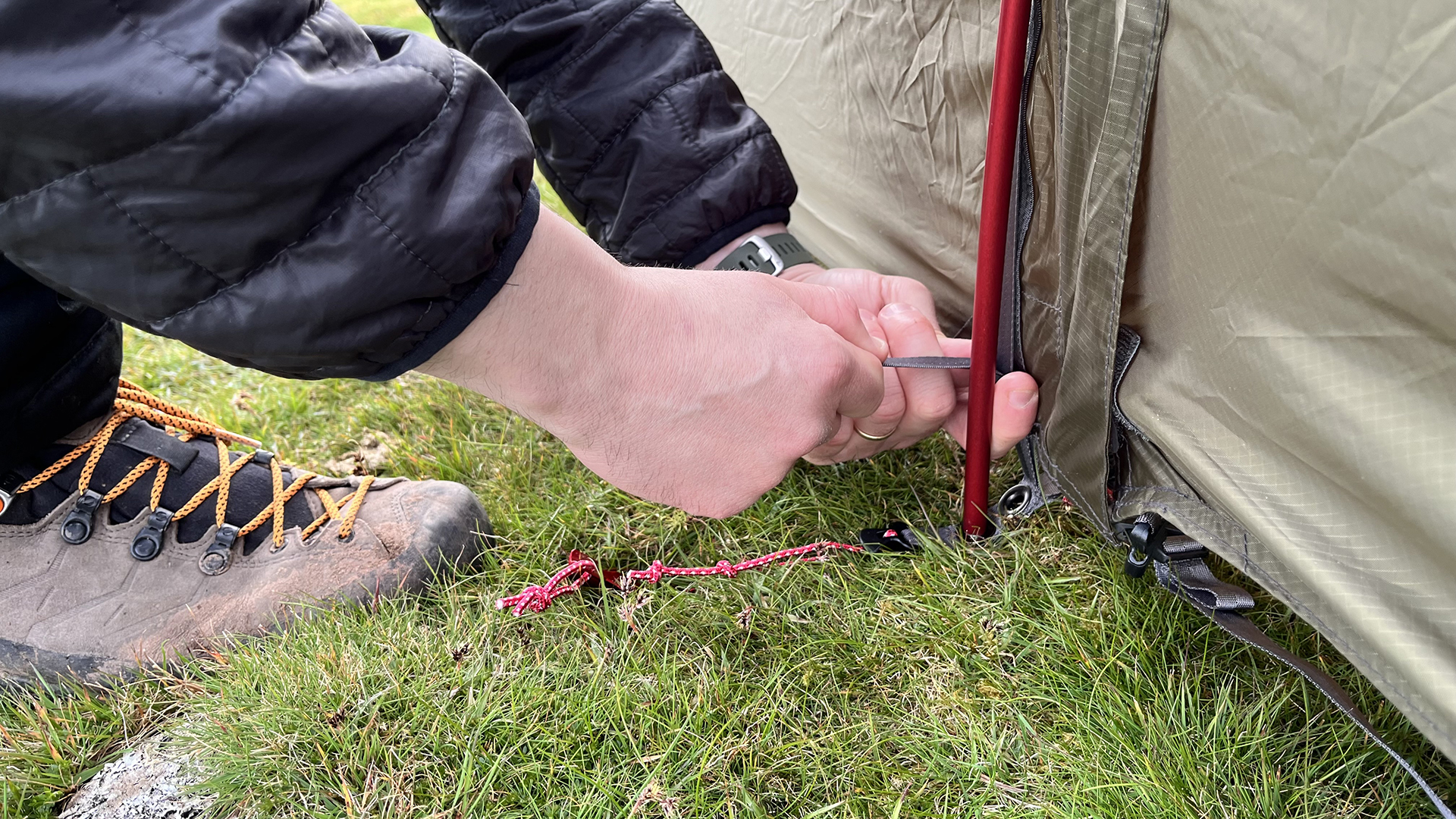
Unfortunately, however, there is one flaw worthy of note. When I was pitching the tent in a local woodland the second time I used it, I managed to push one of the poles clear through the polyester fabric and out the other side, ripping the stitching and creating a small hole. This occurred next to one of the stitched-on guy-line toggles, so it was almost certainly down to a stitching error on this specific part of the tent. To be clear, this hasn’t made any difference to my end-user experience of the Tindheim 2 as I merely tore through the sleeve, not the tent fabric itself, although for the relatively high price (and big brand feel) of the Tindheim, it’s fair to expect a little more durability along even the weakest seams.
MSR Tindheim 2: the bottom line
Overall, the MSR Tindheim 2 is a solid, reliable and easy-to-use two-person tent that actually delivers on its promise of being suitable for two people and kit. Coming with a larger pack size and heavier weight, it might not be suitable for every adventure, especially if you’re covering big distances or tackling high peaks. That said, as it delivers such reliable performance in changing conditions, I really think the Tindheim 2 is a versatile and comfortable option for those who adventure in pairs – or for anybody who prioritizes comfort and living space over pack weight.
Growing up just south of the glorious Brecon Beacons National Park, Craig spent his childhood walking uphill. As he got older, the hills got bigger, and his passion for spending quality time in the great outdoors only grew - falling in love with wild camping, long-distance hiking, bikepacking and fastpacking. Having recently returned to the UK after almost a decade in Germany, he now focuses on regular micro-adventures in nearby Snowdonia and the Brecon Beacons, as well as frequent trips to the Alps and beyond. You can follow his adventures over on komoot.
